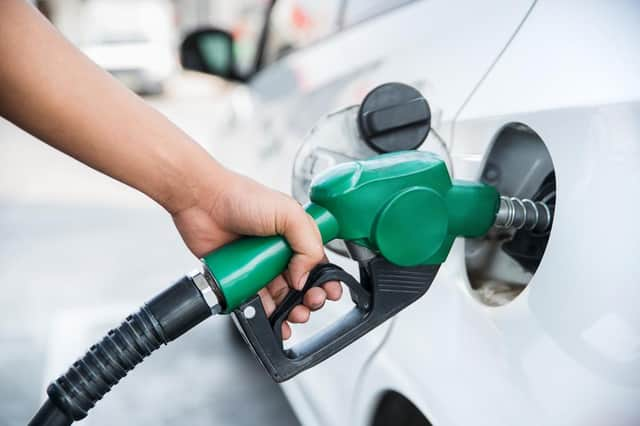How to choose between petrol and diesel if you can’t go green


It’s nothing to do with the colour – the steady increase in the world’s temperature has been matched by the rising amount of information in mankind’s role in global warming, with fossil fuels high on the list of offenders.
But while companies have made huge strides in producing fully electric or hybrid electric cars which can greatly reduce the pollution caused by driving, there is a long way to go before they are an affordable option for everyone.
And for those drivers looking to pick up a car who don’t have the option of electric, the biggest question is once again the choice between petrol and diesel.
Here’s a handy guide to choosing how which one is best for you.
Fuel
It used to be that driving a diesel was always a cheaper option, but with changes to tax laws and greater efficiency in petrol cars that’s no longer quite so straightforward. Purely on fuel cost, diesel is still likely to work out cheaper – while diesel fuel is more expensive than petrol, it goes further meaning over the lifetime of a vehicle you will use less of it.
The calculations get a little more complicated when you start to look at all the costs however – newer diesel cars are likely to be more expensive to tax, which could wipe out any potential saving on fuel costs. So it’s important to check the relative tax band of your proposed car before making a commitment.
For a quick decision, think how much you plan to drive your car, where you drive it and how long you’re likely to keep it. If you’re covering a large area on a regular basis, and don’t plan to switch car for five or six years, a diesel is likely to be the better option. If, however, your driving is mostly short local trips in or around a city, or you plan to change vehicle in a few years an efficient petrol car is likely to be best – with most cities expected to bring in extra charges on diesel vehicles in the coming years.
Maintenance
It might be something that is a bit of an afterthought if you’re buying a new car, but given the eye-watering costs of replacement parts it is always worth thinking about what kind of work a car might need, how frequently it’s likely to need serviced and what the likely cost of that is going to be.
Here it is petrol cars that are the clear winner – they are on the whole cheaper to service, with cheaper parts and less maintenance required to keep them on the road. And as an added problem for diesel users, most newer models will have a particulate filter fitted, which, while great for the environmental impact of your car, is prone to clogging and costly to repair or replace.
Environment
While neither choice is great for the environment, if you have to go for petrol or diesel it’s worth getting the greenest choice possible – although this isn’t as straightforward as it might seem.
Diesel fuel produces less C02, and so would seem the more environmentally friendly option. Diesel engines however produce tiny particulates which have been linked to respiratory diseases such as asthma.
Petrol cars are known as one of the planet’s worst polluters, and if you’re planning on driving a petrol-powered SUV you’ll be getting behind the wheel of a vehicle that was the second biggest contributor to global emissions in 2018.
The smaller and more modern the car the greater the chance it will be as green as possible – and it is also worth noting that while petrol cars produce more C02 than diesel cars, they produce fewer dangerous emissions such as nitrogen.
The key thing to remember is that if you have to go for petrol or diesel, be sure to take the time to consider all the factors that will ensure your choice is as green as possible. And there are always other ways to show your support for the wider environmental cause, from recycling and holiday choices, to window stickers and personalised licence plates.
“Electric vehicles aren’t for everyone yet but that doesn’t mean people driving petrol or diesel cars don’t care about the environment, “ says Jason from Carreg.co.uk
“Many people might want to show their support in other ways, for example with aneco-themed personalised licence plate that lets people know they back the environmental movement. A private plate is a way to express how individual as you are, and there are thousands to choose from.”
Try an online supplier like Carreg.co.uk, which has cheap number plates, available to buy today, as well as an easy-to-use search option.
For more information visit www.carreg.co.uk